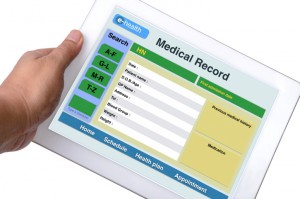On August 29, 2014, the Centers for Medicare and Medicaid Services (CMS) issued a Final Rule regarding the meaningful use requirements for the Electronic Health Record (EHR) Incentive Program.
issued a Final Rule regarding the meaningful use requirements for the Electronic Health Record (EHR) Incentive Program.
The Program
CMS created the EHR Incentive Program to encourage providers to use electronic health records. Under the program, providers are encouraged to increase their use of electronic health records gradually over three years, with each year serving as a different phase. During each phase, practices are required to meet certain objectives and report Clinical Quality Measures to ensure the provider is putting EHRs to meaningful use.
The program rewards practices with financial incentives for participating and, starting in 2015 penalizes providers that fail to make meaningful use of Certified EHR Technology.
The Final Rule can be summarized into three main parts.
First, the Final Rule allows providers to meet 2014 reporting requirements by using previous editions of Certified EHR Technology.
As a result of certification delays, providers often found it hard to obtain 2014 Edition Certified EHR Technology (CEHRT). As a result, the Final Rule allows providers in certain situations to use CEHRT dating back to 2011 to meet certain standards for Stage 2 and Stage 3 compliance for 2013.
Second, the Final Rule extends Stage 2 of the program.
Prior to the Final Rule, providers that first became meaningful users of EHR in 2011 or 2012 were required to begin Stage 3 on January 1, 2016 (or October 1, 2015 if using a fiscal year). However, the Final Rule delays the start of Stage 3 to January 1, 2017 (or October 1, 2016 if using a fiscal year).
Third, the Final Rule modifies reporting requirements for Clinical Quality Measures to show a provider’s choice of Certified EHR Technology.
All providers must report Clinical Quality Measurers (CQMs) from relevant data sets adopted from the Stage 2 Final Rule. However, the new Final Rule has changed the methods of CQM submissions based on the edition of CEHRT a provider uses in 2014.
Practical considerations remain unclear.
While the Final Rule helps providers transition to a greater use of EHR, there remains some concerns. For example, the specific reporting requirements for 2014 remain unclear and the 2015 reporting requirements have remained unchanged.
However, as with many areas of constantly changing health care laws, our Kansas City based Health Care Attorneys are ready to help your practice remain in compliance with the law. You can call any of our health care lawyers at 816-421-4460 if you have questions regarding your compliance.
Image: Thinkstock/pandpstock001
*This article is very general in nature and does not constitute legal advice. Readers with legal questions should consult with an attorney prior to making any legal decisions.
